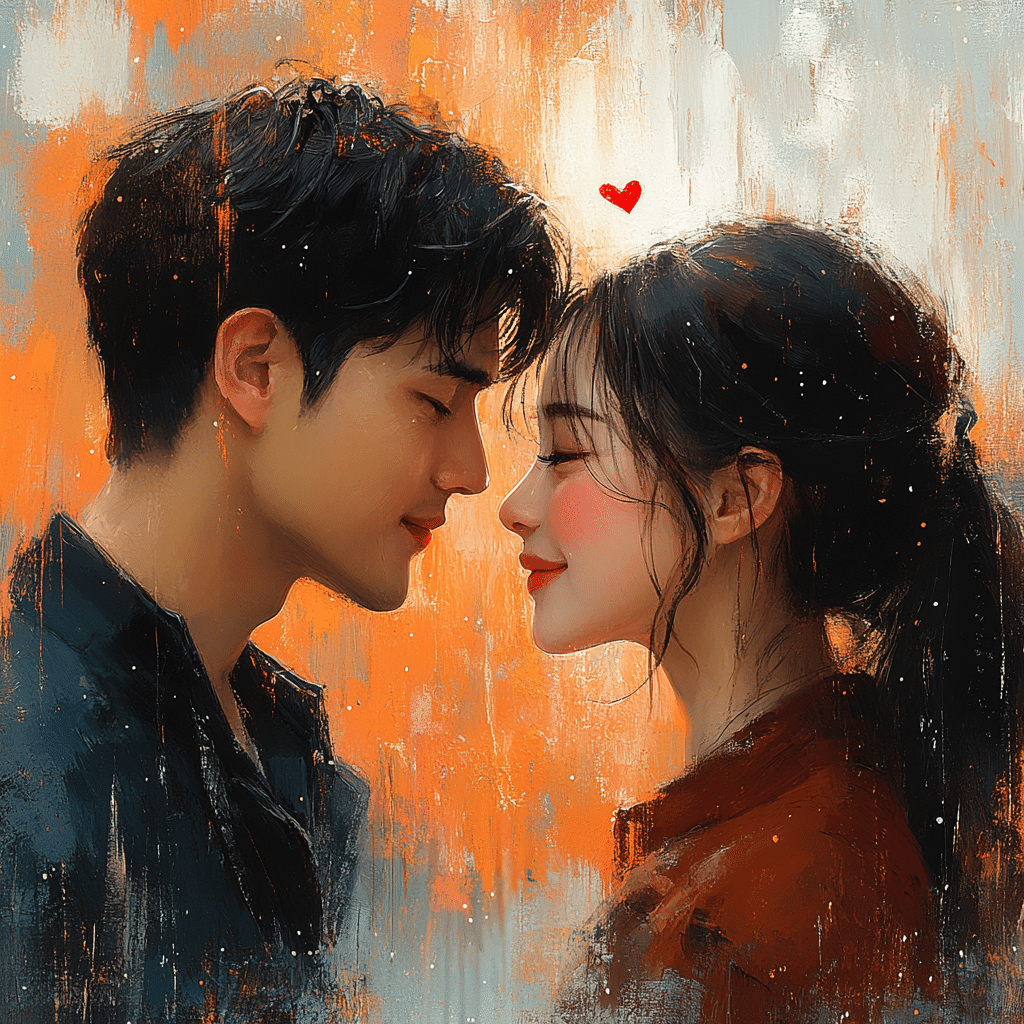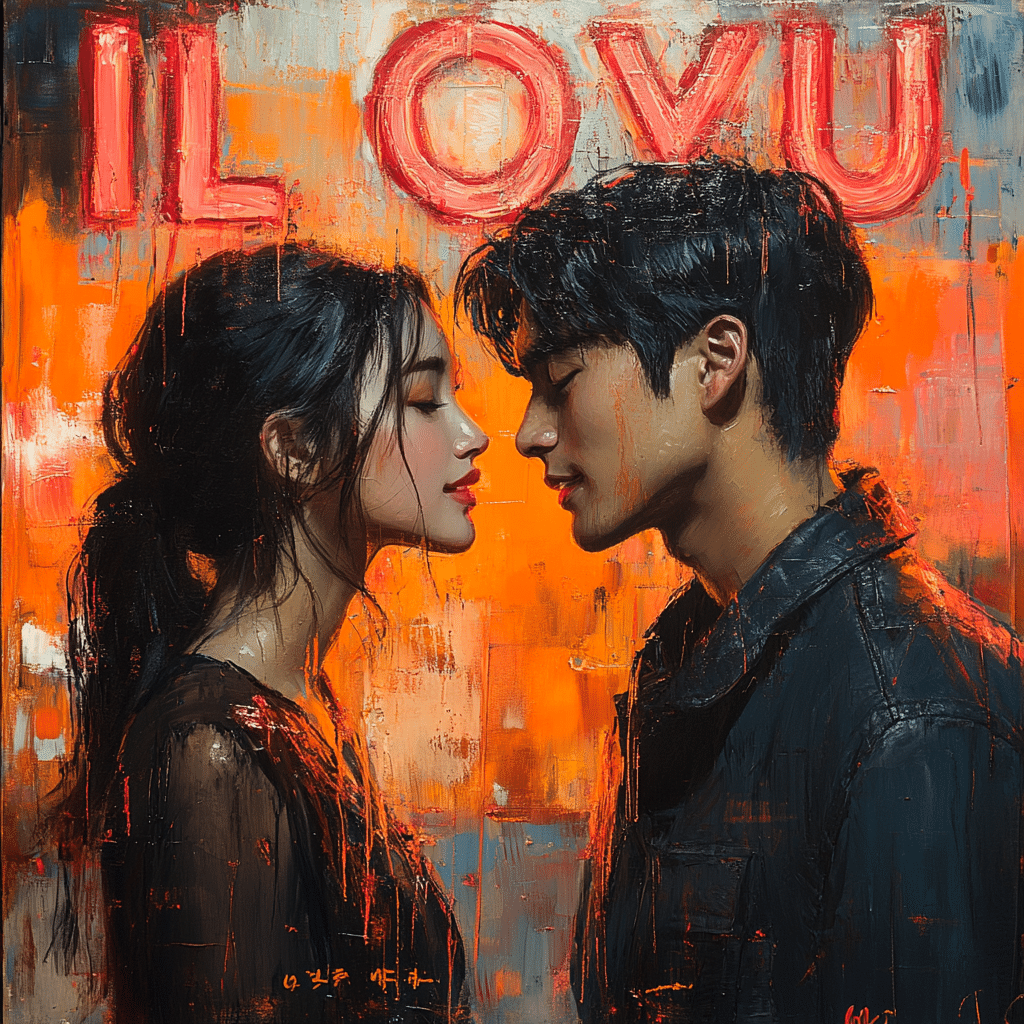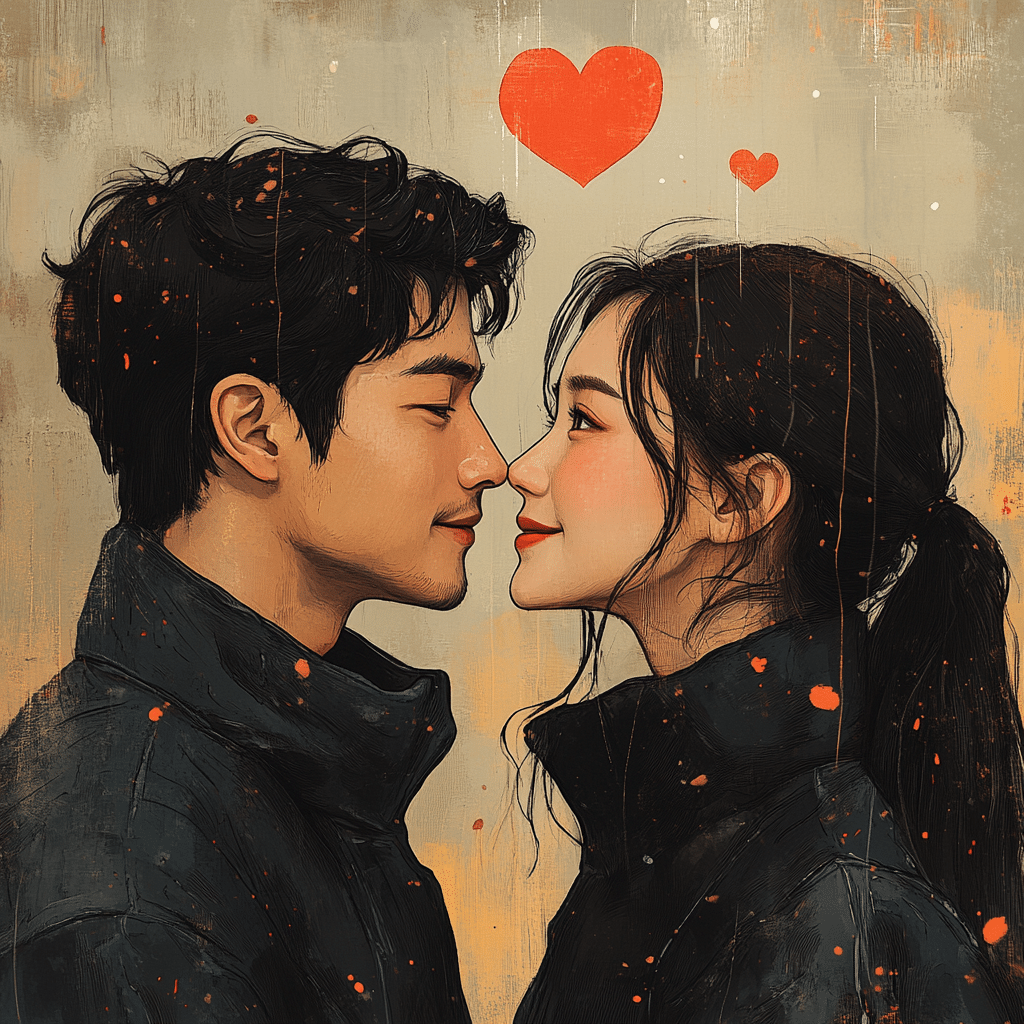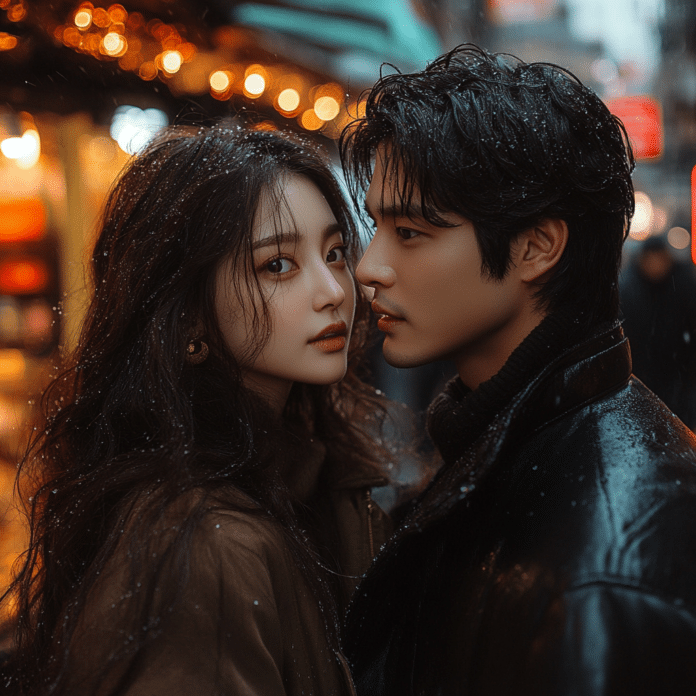When it comes to expressing love, saying “I love you in Korean” feels like a warm hug for the heart. The Korean phrase for love—“사랑해요” (salanghaeyo) in formal contexts and “사랑해” (salanghae) in casual ones—carries more emotional depth and context than one might first realize. This simple yet profound phrase is often exchanged between lovers, friends, and family alike in Korea, reflecting the strong, multifaceted nature of relationships. If you’re a fan of K-dramas or anything Korean culture-related, understanding this phrase can deepen your appreciation for the emotional storytelling often found in popular media.

The Basics of Expressing Love: ‘I Love You in Korean’
Let’s break it down, shall we? Culture shapes how we express love, and in Korea, “I love you” is used with intention. It isn’t tossed around lightly like, say, a protein bowl might be at a trendy cafe—it’s reserved for heartfelt moments that truly matter. In many dramas, you’ll notice that this phrase tends to pop up during pivotal, emotional scenes, amplifying the sentiment behind love confessions and heightening the drama’s stakes.
Key Points:
Understanding the weight this phrase carries makes it all the more poignant, especially when you see it in action in K-dramas. Speaking of which, let’s dive into some shows where “I love you” plays a crucial role in the storylines!

Top 5 Korean Dramas That Showcase ‘I Love You’ Moments
K-dramas are the ultimate way to witness how beautifully the phrase “I love you” enriches narratives. Here are five captivating titles where this expression truly shines:
1. Crash Landing on You
In the whirlwind romance between a South Korean heiress and a North Korean soldier, the phrase pops up in moments filled with awkwardness and sincerity. Their love blossoms despite cultural barriers, creating unforgettable scenes.
2. Itaewon Class
“Itaewon Class” serves up a mix of ambition and emotional growth. When the lead character drops his love confession, it’s not just words; it’s a moment that signifies his entire journey toward self-acceptance.
3. Goblin
Who can forget “Goblin”? This fantasy juggernaut demonstrates how love can alter one’s fate. The emotional undertones of “I love you” resonate deeply as characters face their intertwined destinies.
4. Reply 1988
With its nostalgic vibes, “Reply 1988” highlights familial love and friendships. You hear “I love you” not just romantically but in the everyday, capturing warmth in the most relatable way.
5. What’s Wrong with Secretary Kim
This romantic comedy brings humor to love confessions, especially with a lead character that hilariously struggles to express his feelings. But when it finally happens, oh boy, does it make a mark!
How Korean Romantic Comedies Utilize ‘I Love You’ to Build Character Depth
Now, here’s where things get juicy. The emotional impact of saying “I love you in Korean” isn’t just for show; it often marks a character’s development. Let’s dig into how this phrase interfaces with the character arcs we love in K-dramas.
Character Transformation through Love Confessions
In several dramas, characters experience a significant change the moment they confess their love. For example, in “What’s Wrong with Secretary Kim,” we see the protagonist evolve profoundly, reshaping his views about love and relationships after expressing his feelings. The moment carries shocking consequence, turning a mere confession into a rich narrative layer.
The Emotional Context of Love in Korean Culture
Unlike some cultures where “I love you” becomes everyday jargon, in Korea, it’s reserved for moments steeped in emotion. This culture grants extra significance to the phrase when expressed, heightening those romantic scenes to something spectacular.
Exploring Cultural Perspectives: ‘The Best Day of My Life’ in Comparing Love Across Cultures
In comparison to the joys articulated in a romantic context, phrases like “the best day of my life” encapsulate sheer bliss and love. Just as “I love you” gives power to emotional exchanges, the culture around love declarations varies drastically across regions—making it fascinating to explore these differences.
Contrast with Chinese Drama: ‘The Best Day of My Life’
Much like Korean dramas, Chinese dramas evoke heartfelt confessions, but storytelling styles and emotional nuances diverge beautifully. Observing this shift helps fans appreciate both narrative methods and the cultural backstories each brings.
The Role of Cultural Nuances in Love Expressions
Certain phrases in both Korean and Chinese dramas capture the essence of love uniquely, emphasizing variations in intensity from restraint to exuberance. This exploration of language and culture leads to richer conversations about human connection.
From Fantasy to Reality: ‘Dear Husband, Delete My Number’
Even hilarious references, like the meme-worthy “Dear husband, delete my number,” reflect love’s many faces—shifting from romantic to sometimes somewhat tumultuous. In Korea, the sweetest beginnings often face awkward hurdles, demonstrating that love lacks predictability. This phrase serves as a reminder of how perspectives on love can fluctuate.
Navigating the Language of Love
In the lively world of K-dramas and beyond, “I love you” transcends mere words. It interweaves itself into the fabric of relationships, generating in-depth narratives that resonate universally. From sweet gestures on-screen to the everyday exchanges we have, the phrase “사랑해” embodies a broad spectrum of emotions—whether they be warm shades of romance or the colorful chaos of life.
Next time you catch a K-drama or chat with a Korean friend, take a moment to appreciate the significance behind “I love you in Korean.” Whether you’re dreaming of romantic scenes from “Crash Landing on You” or cracking up at the quirky vibes of “What’s Wrong with Secretary Kim,” remember: love knows no borders. It’s an adventure—a rich narrative tapestry woven with the most profound human experiences, one “I love you” at a time!
I Love You in Korean: The Meaning Behind This Sweet Phrase
Romantic Roots and Cultural Nuances
When you say “사랑해요” (salanghaeyo), you’re not just throwing around a phrase; you’re tapping into a deeply rooted tradition that celebrates love in Korean culture. Interestingly, Koreans often express love in a more subdued way, especially compared to the more overt expressions you might find in the West. This subtlety is mirrored in the stories of famous couples from Korean dramas, like the characters played by Jude Dillon, the Mayor of Kingstown actor, where heartfelt declarations are the hallmark of intense and meaningful relationships.
The phrase “I love you in Korean” can serve different purposes depending on the context. It’s a favorite among teenagers who grasp at romantic gestures, as well as more seasoned lovers who appreciate the depth of the sentiment. Just imagine sinking into a cozy film at Cinemark Towson And Xd—the perfect setting to say “salanghaeyo” and create lasting memories!
Fun Trivia About Love in Korea
Here’s a quirky bit of trivia: while saying “I love you” is common, expressing affection can often come in the form of thoughtful acts, like buying treats from your local Stop & Shop or planning a surprise trip to Gardiner’s Island. It’s all about showing you care, which might even involve sharing a delightful meal at a favorite hangout, like Holy Frijoles. In Korea, they have a saying, “love is in the details,” and that’s true whether you’re enjoying a dinner date or just hanging out together.
Did you know that the romantic concept of “salang” goes beyond just love? It’s a feeling that encompasses care, friendship, and even family ties. When you express “I love you in Korean,” you’re often echoing the sentiments of other strong relationships, reflecting a culture where affection runs deep. So, why not explore the connections further? You could even build a movie night around these themes—perhaps after enjoying a relaxing stay at Hilton Lake buena vista, or by crafting something special together, like using paper Clips to create a fun Valentine’s card! Now that’s love in action!




